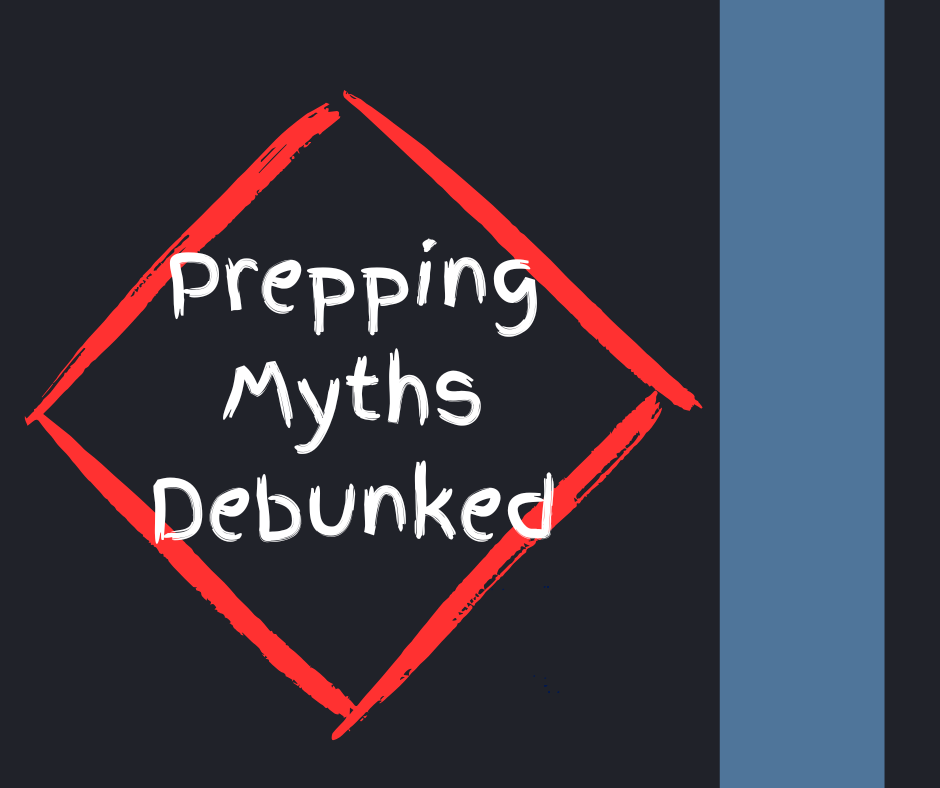
Is Prepping Worth It? Debunking Common Myths
Share
If you've ever wondered whether emergency preparedness—or "prepping"—is worth the time, money, or effort, you're not alone. While more people than ever are waking up to the importance of being ready for the unexpected, prepping still gets a bad rap in some circles. It's often misunderstood, sometimes even mocked, and rarely seen for what it truly is: practical, responsible, and empowering.
At Ready & Prepped, we're here to set the record straight. Let’s bust through some of the most common prepping myths and explore why preparing for emergencies isn't just worth it—it might be one of the smartest things you do for your family.
Myth #1: “Prepping is for Doomsday Believers”
Reality: Prepping isn't about stockpiling for the end of the world. It's about being ready for real-world emergencies—natural disasters, power outages, job loss, supply chain disruptions, and more.
We don’t prepare because we’re paranoid. We prepare because we’ve seen how quickly the unexpected can happen. From winter storms to wildfires, everyday people face emergencies every year. Having food, water, medical supplies, and a plan in place can make those situations far less stressful—and far safer.
Myth #2: “Prepping Is Expensive”
Reality: Prepping can actually save you money.
Yes, there are people who invest heavily in high-end gear and long-term food storage, but prepping doesn’t have to break the bank. In fact, prepping on a budget is not only possible—it’s encouraged! You can build a simple emergency kit, stock your pantry gradually, and learn essential skills without spending a fortune.
We recommend starting small: add a few extra cans to your grocery list, set aside a gallon of water each week, and prioritize needs based on your family and location. Over time, those small steps lead to solid preparedness.
Check out this article on how to prep on a tight budget, or this article with a $10/week prep plan.
Myth #3: “I Don’t Have Space to Store Anything”
Reality: Prepping is flexible—and can work in any size home.
Living in an apartment or small home doesn’t mean you can’t prepare. It just means you prep smart. Under-the-bed storage, closet organizers, and multi-use gear can maximize your space. You don’t need a bunker—you need a plan.
Plus, prepping isn’t just about stuff. Skills, knowledge, and community connections matter just as much—sometimes more.
Check out this article on how to prep in small spaces and this one on how to store water in small spaces.
Myth #4: “Prepping Is Overwhelming”
Reality: Prepping is a journey, not a race.
We get it—there’s a lot of information out there. But prepping doesn’t have to be all-or-nothing. It’s okay to take it one step at a time. Start with a 72-hour kit. Learn how to purify water. Practice a fire drill with your kids. Every step you take makes your family more resilient.
At Ready & Prepped, we specialize in helping people who are just starting out, especially those feeling overwhelmed by space or budget limitations. You don’t have to do it all today. Just do something. Check out this article titled "How to Start Prepping Without Feeling Overwhelmed."
Myth #5: “If Something Bad Happens, Help Will Come Quickly”
Reality: Emergency services are often stretched thin during disasters.
First responders are amazing, but they can’t be everywhere at once. In large-scale emergencies, it could take days for help to arrive. That’s why being self-reliant for at least 72 hours (ideally longer) is so important. Prepping gives you time, options, and peace of mind when others are scrambling.
So… Is Prepping Worth It?
Absolutely.
Prepping is an investment in your safety, security, and peace of mind. It's not about fear—it's about confidence. When the power goes out, the roads shut down, you experience job loss, or medical emergencies, you’ll know you’ve got what you need to take care of yourself and your loved ones.
Whether you’re prepping for natural disasters, economic hiccups, or just life’s unpredictable twists, know this: you’re not overreacting. You’re being responsible.
Ready to take the next step?
Check out this article to get you started: Emergency Prep: Where to Start. If you're not sure where to start, sign up for our newsletter and get one small, practical action each month to move you forward—without the overwhelm.
Because peace of mind isn’t just worth it—it’s priceless.
No fuss. No fluff. No fear.
